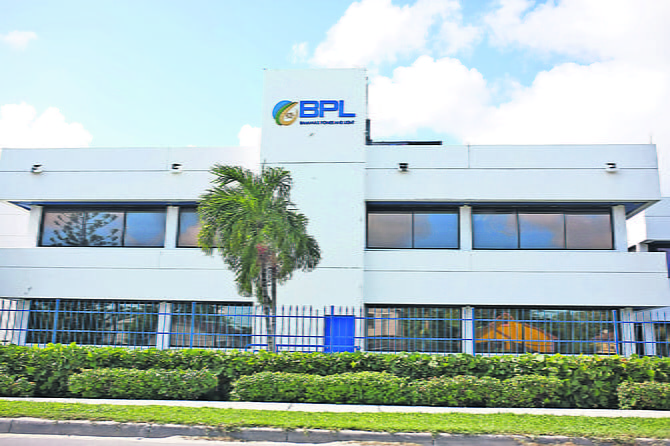Shell NA deal “in abeyance”
NASSAU, BAHAMAS — While The Bahamas Power and Light’s (BPL) fuel hedging program instituted under the Minnis administration remains in place, it has not offset as much of the company’s $300 million annual fuel bill as originally anticipated.
BPL chief executive Shevonn Cambridge provided an update at a press conference at the Office of the Prime Minister yesterday on the company’s fuel charge increase.
Cambridge said: “The fuel hedge is still in place. When it was put in place back in 2020 it was based on 80 percent of the volume that was used at the time. The hedging strategy was based on a declining volume basis. The hedge is still in place and around 40 percent of our volume is still hedged.”
“What was originally envisioned with the fuel hedge was that it was based on certain projections,” he continued.
“As it was rolled out in real-time certain scenarios didn’t roll out exactly as envisioned. When it was put in place it was based on a forecast of using certain volumes of the different fuels in our fuel basket. Operationally that didn’t roll out as we planned and so we ended up using more of the expensive product than the cheaper product and therefore the yield from the fuel hedge didn’t offset much of the fuel bill as originally anticipated.”
Cambridge also noted that the deal between BPL and Shell North America which was signed under the Minnis administration remains “in abeyance” but is “not dead.”
In November 2018, the government signed a memorandum of understanding with Shell North America (Shell NA) for the development of a gas-to-power project. The project would include the development of a gas-fire 220-plus megawatt power plant; marine infrastructure to receive LNG; a gas pipeline to bring gas to shore; and an onshore LNG re-gasification terminal.
Works Minister Alfred Sears, who has ministerial responsibility for BPL, noted the company currently secures its fuel solely from Shell.
“As we move forward BPL will be diversifying its fuel sources based on competitive prices so that there can be a more affordable delivery of energy to the Bahamian consumer,” Sears said.
Cambridge added: “We are also looking for not just cheaper but cleaner fuels and the more you diversify the greater your flexibility is to move with the market swing from one fuel to the other.”






